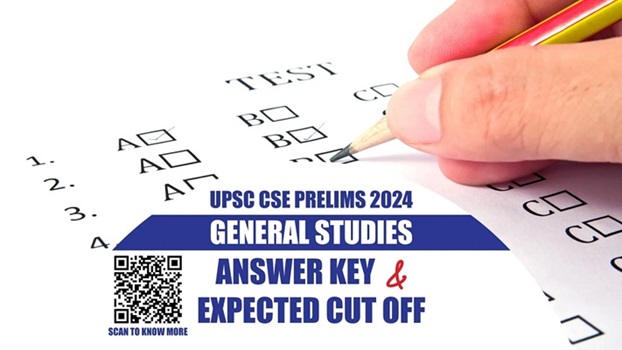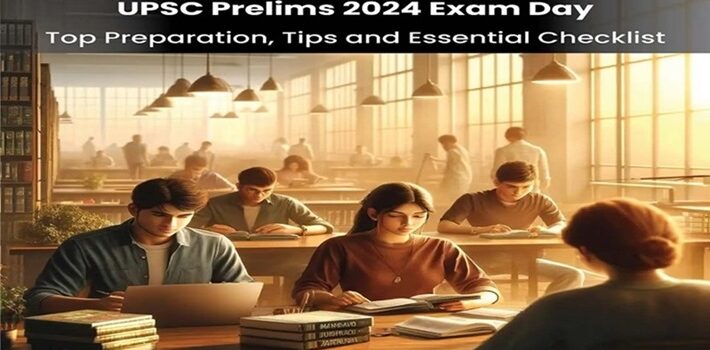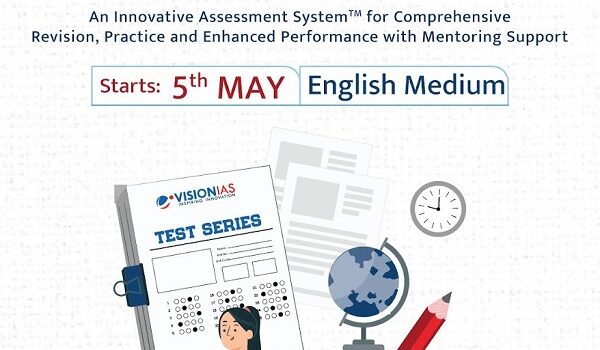The UPSC CSE Prelims 2024 was held on 16th June 2024 which has provided several insights into the evolving nature of the examination and the key areas of focus for aspirants. This analysis aims to delve deeper into the trends observed in this year’s paper, providing valuable takeaways and strategic suggestions for future candidates.
Overview of 2024 UPSC GS Prelims
The 2024 GS Prelims paper was characterized by a balanced and comprehensive approach, emphasizing foundational knowledge across a wide range of subjects. Compared to recent years, the overall difficulty level was relatively lower, making the paper more accessible to well-prepared candidates. This shift highlights the importance of a holistic preparation strategy, covering both conventional and dynamic aspects of the syllabus.
One of the most notable features of this year’s paper was the significant weightage given to conventional and static subjects. The emphasis was on testing aspirants’ understanding of core concepts and fundamental facts, which made the paper more manageable for those with a strong grasp of the basics. This trend underscores the need for aspirants to focus on building a solid foundation in each subject area.
Subject-Wise Analysis
- Geography: Geography made a strong comeback in this year’s paper, with nearly 20 questions dedicated to the subject. This included a substantial focus on environment and ecology, indicating the growing importance of these areas in the UPSC Prelims. The questions were designed to test both factual knowledge and conceptual understanding, reinforcing the need for thorough preparation in physical, human, and environmental geography.
- Polity & Governance: The Polity & Governance section was relatively easier, with questions based on conventional topics. The paper tested candidates’ knowledge of fundamental principles, constitutional provisions, and important governance mechanisms. This trend suggests that aspirants should continue to prioritize understanding the Constitution, key amendments, and landmark judgments.
- History: In the History section, the weightage of modern history showed a decline. However, the questions asked were conventional and doable, focusing on key events, personalities, and movements. Art & Culture was more influenced by current affairs, with questions linking historical events to contemporary issues. Ancient and medieval history saw fewer questions compared to last year, but the ones asked required a good grasp of significant events and cultural developments.
- Science & Technology: Science & Technology questions leaned towards cutting-edge technologies, with topics that were less complex but required an understanding of recent advancements. This indicates that aspirants should stay updated with the latest developments in science and technology, particularly those with practical applications and societal impact.
- Defence and Security: Defence and security-related questions made a notable appearance, highlighting the increasing importance of these areas. The questions were designed to test knowledge of recent developments, strategic policies, and key initiatives in national security.
- Economics: The Economics section included both conceptual and news-oriented questions. Aspirants were tested on fundamental economic principles as well as recent economic trends and policies. This dual focus underscores the need for a solid understanding of economic theory and current economic affairs.
- Current Affairs: Current Affairs continued to be a significant component, inspiring many static questions. The paper demonstrated the integration of current events with static topics, emphasizing the importance of regular newspaper reading and staying updated with ongoing national and international developments.
Key Takeaways and Strategic Suggestions
- Focus on Foundational Knowledge: The key takeaway from this year’s paper is the significance of focusing on foundational knowledge. Aspirants should prioritize building a strong understanding of the basics across all subjects. This includes revising standard textbooks, practicing previous years’ question papers, and strengthening core concepts.
- Comprehensive Preparation: The strategy to enhance attemptability in the UPSC Prelims should prioritize equal focus on every static subject. As observed this year with Geography’s resurgence, any subject could see a comeback in subsequent exams. Therefore, students cannot afford to neglect any subject in their comprehensive preparation. Regular revision and a balanced approach to all subjects are crucial.
- Practice and Elimination Skills: This year’s paper reaffirms the idea that “practice is the key.” Aspirants must diligently practice test papers for the prelims to enhance their readiness and performance. The return of elimination skills in the paper is a positive development. Students should hone their ability to eliminate incorrect options, as this technique can significantly increase the chances of selecting the correct answer.
- Importance of Current Affairs: Current Affairs remains a core part of the preparation. Despite the paper being theoretical and conceptual, many questions were centered around recent news issues. This highlights the need for aspirants to integrate current affairs with static knowledge. Regular reading of newspapers, and monthly current affairs magazines, and following reliable online sources are essential practices.
- Subject-Specific Strategies:
- Geography: Given its prominence this year, aspirants should focus on comprehensive coverage of physical, human, and environmental geography. Understanding geographical phenomena, current environmental issues, and recent policies is crucial.
- Polity & Governance: Continue to emphasize understanding the Constitution, governance mechanisms, and key amendments. Regular revision of standard polity textbooks is recommended.
- History: Maintain a balanced approach to all periods of history. Link historical events with current affairs to better understand their relevance and implications.
- Science & Technology: Stay updated with recent advancements and practical applications of emerging technologies. Focus on understanding basic scientific principles and their real-world implications.
- Economics: Strengthen conceptual knowledge and stay informed about recent economic developments, policies, and trends. Regularly read economic surveys, budget documents, and reliable financial news sources.
- Stress Management and Time Management: Managing stress and time effectively is crucial for optimal performance. Aspirants should practice mindfulness techniques, maintain a healthy routine, and allocate sufficient time for each subject. Regular breaks, adequate sleep, and a balanced diet can help maintain physical and mental well-being.
The 2024 UPSC GS Prelims paper has highlighted the importance of a comprehensive and balanced preparation strategy. By focusing on foundational knowledge, practicing diligently, and staying updated with current affairs, aspirants can enhance their readiness for the exam. The insights gained from this year’s paper should guide future candidates in refining their preparation strategies, ensuring they are well-equipped to tackle the diverse and dynamic nature of the UPSC Prelims.
Visit us at:
Or Call us at: 8468022022, 9019066066






